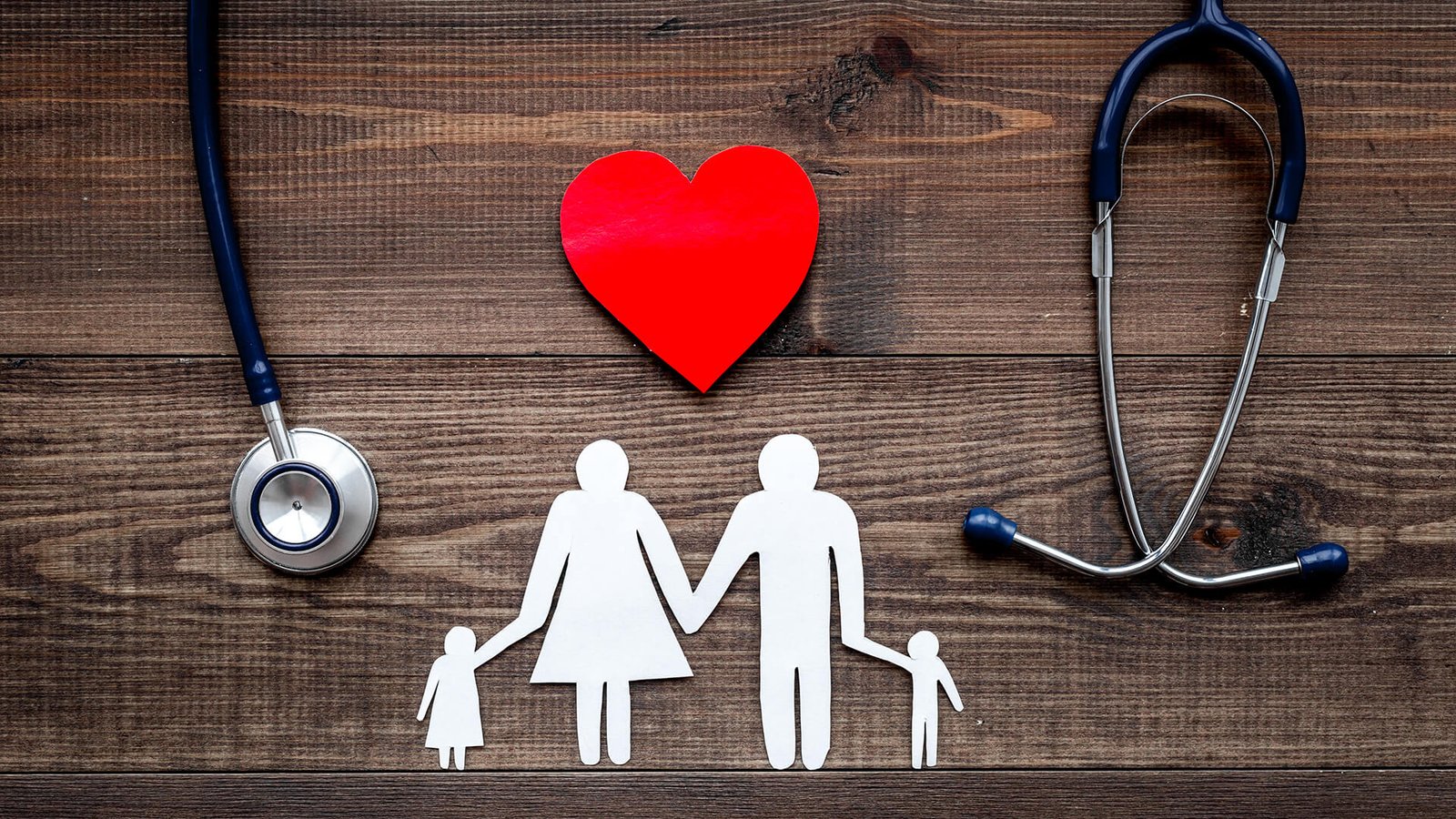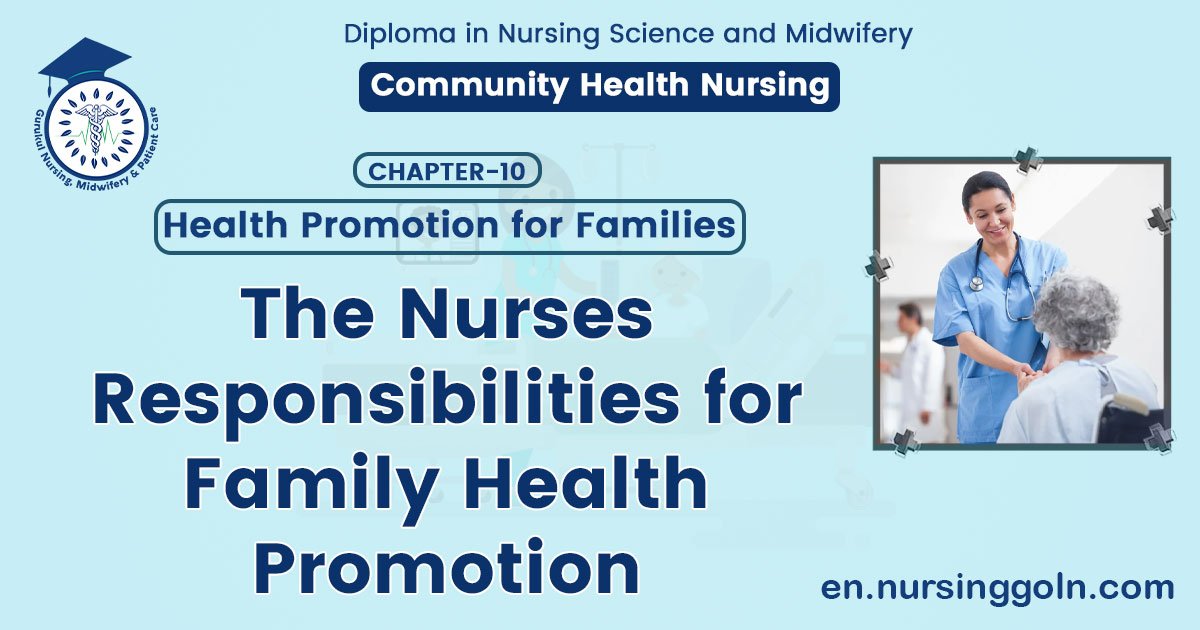The Nurses responsibilities for family Health Promotion – This book covers the entire syllabus of “Community Health Nursing” prescribed by the Universities of Bangladesh- for Basic and diploma nursing students. We tried to accommodate latest information and topics.
This book is examination friendly setup according to the teachers’ lectures and examination’s questions. At the end of the book previous university questions are given. We hope in touch with the book students’ knowledge will be upgraded and flourished. The unique way of presentation may make your reading of the book a pleasurable experience.

The Nurses responsibilities for family Health Promotion
The Nurses roles for family Health Promotion
1. To develop good practice in health promotion, the nurse needs to consider the following
- Incorporate health promotion as an integral part of nursing practice in different health care settings and in the community.
- Facilitate and empower individuals, families and communities to increase control over the determinants of health via capacity building strategies.
- Work in partnership with other disciplines and sectors in promoting the health of the community
2. Evaluate the outcome of health promotion activities and pursue continuous improvement.
3. Participate in and contribute to the development of evidence-based practice in health promotion.
4. Advocate for the individual, families and communities, and contribute to the formulation of public health policies for promoting the health of the population at large
The Nurses responsibilities for family Health Promotion
1. Assessing health needs: The nurse should assess the health needs of the individual, families or the public and provide them with information and education that enable them to promote health, assume self-care at different stages of their lives; and to cope with acute/chronic illnesses and injuries.
2. Building capacity in health promotion: The nurse should acquire specialized skills and competence in health promotion through lifelong learning. He/she should then adopt various health promotion strategies that help families/people to build capacity in controlling their own health and in making healthy life choice.
3. Participating as a proactive key player in inter- sectoral collaborations: The nurses working in diverse settings should contribute to the implementation of health promotion strategies in partnership with other interested parties, as nursing acknowledges inter- sectoral contribution to health promotion.
4. Tackling multiple health determinants: The nurse has an important role to play in promoting health in a wide range of settings, including families, schools, workplaces, hospitals and local communities, as well as at a broad societal level. By raising the awareness of people of the multiple and changing determinants of health and their responsibilities in controlling them, the nurse may helps to remove obstacles to health promotion.
5. Evaluating health promotion activities: The nurse should include evaluation strategies in his/her initial planning for health promotion activities so that the effectiveness of the programmes and health outcome could be evaluated as appropriate. This is important for making continuous improvement for future activities.
6. Generating new knowledge and understanding on health promotion by research: The nurse should participate in conducting research and/or disseminating research findings on both health promoting information and health promotion programmes so that a scientific database is built for the development of evidence-based practice. Moreover, new concepts and strategies would be generated to guide future practices.

7. Advocating for the individual, family and community at political and social levels: The nurse should advocate for community development and social involvement, public and social policy change for conducive to promoting the health of the population at large.
